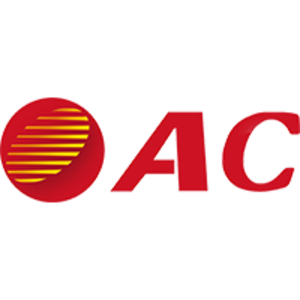LANGUAGE↓

News & Policies

China Makes Greater Efforts to Have Better Business Environment
On May 2nd, Premier Li Keqiang presided over the executive meeting of the State Council and took measures to reduce the opening time of enterprises and the approval time of project construction projects by more than half, further optimize the business environment work, and reviewed and approved the "Opinions on Further Squeezing the Opening Hours of Enterprises".
According to the Opinions, by the end of 2018, municipalities directly under the Central Government, cities under separate planning, sub-provincial cities, and provincial capitals will reduce the time for setting up their businesses by more than half, from the current average of 20 days to less than 8.5 days, to achieve approval of engineering construction projects. The time is compressed by more than half from the current average of more than 200 working days to 120 working days.
Expedited business registration will first be implemented in municipalities directly under the central government (Beijing, Chongqing, Tianjin, and Shanghai), planned cities, sub-provincial cities, and provincial capitals this year. These regions include Dalian, Guangzhou, Hangzhou, Qingdao, Ningbo, Xiamen, and Shenzhen, among many others.
The government aims to have all cities in China reach this goal in the first half of 2019.
The measures to shorten the business registration process include:
- To implement of process reengineering, vigorously implementing the “one-window acceptance, parallel processing,” and full online processing.
- To optimize the enterprise registration process, implement the enterprise name self-report, streamline the paper form, and shorten the time for registration of the establishment of the enterprise to 5 days.
- To incorporate the official seal engraving and reform record into the “multiple evidence integration” and improve the production efficiency of the official seal. It requires that seal engraving be completed within one day.
- It is no longer a separate tax registration for companies that have received the business license for the loading of a unified social credit code, no separate issuance of a social security registration certificate, and a reduction in the time required for invoice receipt and registration.
- To improve the registration process of corporate social insurance and improve the efficiency of registration services.
Meanwhile, the government plans to accelerate the approval process for construction projects will first be introduced in 16 pilot regions: Beijing, Shanghai, Nanjing, Guangzhou, Shenzhen, Weinan, Taijin, Chongqing, Shenyang, Dalian, Xiamen, Wuhan, Chengdu, Guiyang, Yan’an, and Zhejiang. As with the business registration measures, the government aims to have national implementation by the first half of 2019.
To cut the approval time for construction projects, the government announced three main initiatives:
- Simplifying the process for examination and approval, including by canceling the need to record construction contracts and building efficiency design reviews, and streamlining the process for environmental impact assessments and other assessments;
- Implementing categorized management, including by simplifying the approval procedures for small and medium-sized construction projects and allowing construction units to decide their own process for contract awarding; and
- Streamlining registration stages, including by using “one system, one window” to provide integrated services.
Additionally, the government announced that it will build a unified national construction approval and management system by 2020.
The moves to shorten the business registration and construction project approval processes are part of a wider government campaign to cut bureaucratic red tape, eliminate government overlap and inefficiencies, and improve ease of doing business in the county.
Several regional governments in China, such as the Beijing municipal government, have undertaken efforts to improve the business environment at the local level.
In its most recent rankings, the World Bank ranked China 78 out of 190 economies for ease of doing business, sandwiched between the Kyrgyzstan at 77 and Panama at 79.





